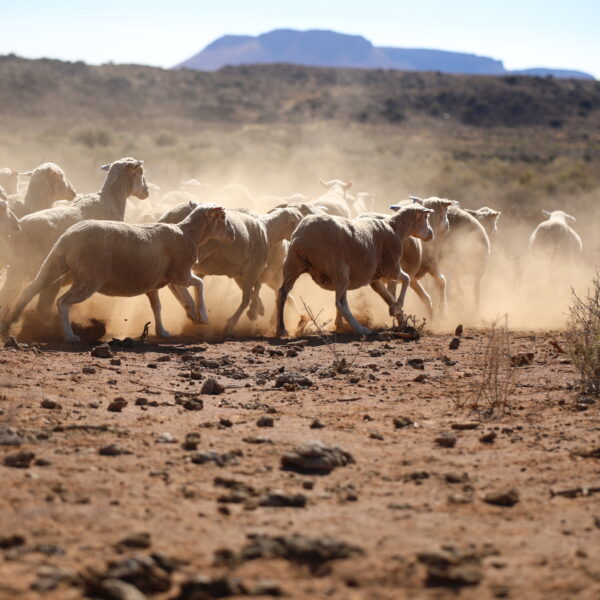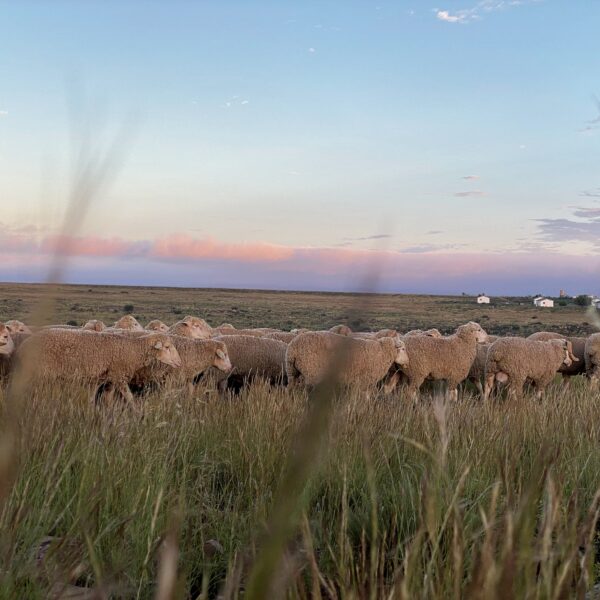Regenerative agriculture – a Sustainable Practice
Regenerative agriculture defines farming methods and techniques that enhance soil quality to restore biodiversity and thus reduce the impact of conventional agricultural practices on the environment. The idea is to farm in a more thoughtful and sustainable way while considering the land, animals and people.
Broadly speaking, regenerative agriculture extends beyond basic agricultural practices, with its holistic approach aimed at farming differently, and by freeing itself from environmentally hazardous products such as pesticides, fertilizers and agrochemicals. Through striving to use as few chemical inputs as possible, there is less risk that these could end up in water, food or other products such as wool and ultimately impact human health.
Regenerative agriculture focuses on conservation and rehabilitation actions that address:.
These actions
give priority to
- Soil health and vitality (topsoil regeneration)
- Optimisation of the water cycle
- Restoring biodiversity and animal welfare
- Relationships within ecosystems
- Improving ecosystem services
- Reduction of synthetic inputs
- Bio sequestration
- Developing local agriculture and supporting local communities and economies that depend on the soil for their livelihoods
Regenerative agriculture is a new, common-sense approach which challenges existing assumptions and paradigms.

The Importance of Soil Health
Everything on earth depends on soil health. A healthy soil life promotes healthy plants, supports ecosystem processes on which all life depends, promotes biodiversity of species, healthy plants/fodder for animals, and healthy food and products that are produced from a healthy environment.
Soil plays an important role in the global carbon cycle. Soil acts as the world’s largest sink of active carbon because plants absorb carbon from the atmosphere, convert it to plant tissue, and return it to the soil as plant residue. Farming practices influence the amount of carbon that soils retain and the amount of carbon that is released into the atmosphere.
The agricultural techniques used in Regenerative Agriculture (RA) improve soil health by increasing soil organic matter and the carbon content of soil. Under improved management, soils have the potential to store much more atmospheric CO2 than if they were not. High levels of carbon improve soil structure, increasing physical stability. This in turn improves soil aeration, water drainage and retention, and reduces erosion and nutrient leaching.
RA, apart from fixing our soils and positively influencing environmental issues like desertification, improves the carbon cycle, the water cycle and mitigates climate change.
Regenerative Agriculture at Segard Masurel
Regenerative agriculture is a tool used by farmers to reverse the effects of desertification in arid areas, improving the quality of their grass rangelands, farm more sustainably and promote soil health, animal welfare and plant biodiversity. Segard Masurel works collaboratively with woolgrowers who farm with nature and who meet the fundamental requirements of the Abelusi Wool Standard, being continuous improvement of agricultural management practices and preservation of written environment, social responsibility and animal welfare requirements.
Segard Masurel, in collaboration with fashion brands, recognises and encourages the efforts of wool producers applying the principles of regenerative agriculture, and helps them to integrate these principles even more into the management of their businesses and farms.
In conclusion, agriculture has the greatest potential to cool the planet, as photosynthesis absorbs carbon and cools the environment through transpiration. Regenerative agriculture offers the opportunity to adopt a truly sustainable mode of farming. Wool makers can limit the impact of their activity on the environment while producing quality products. Segard Masurel and the partner fashion brands see regenerative agriculture as a real investment for the good of the planet and people.


